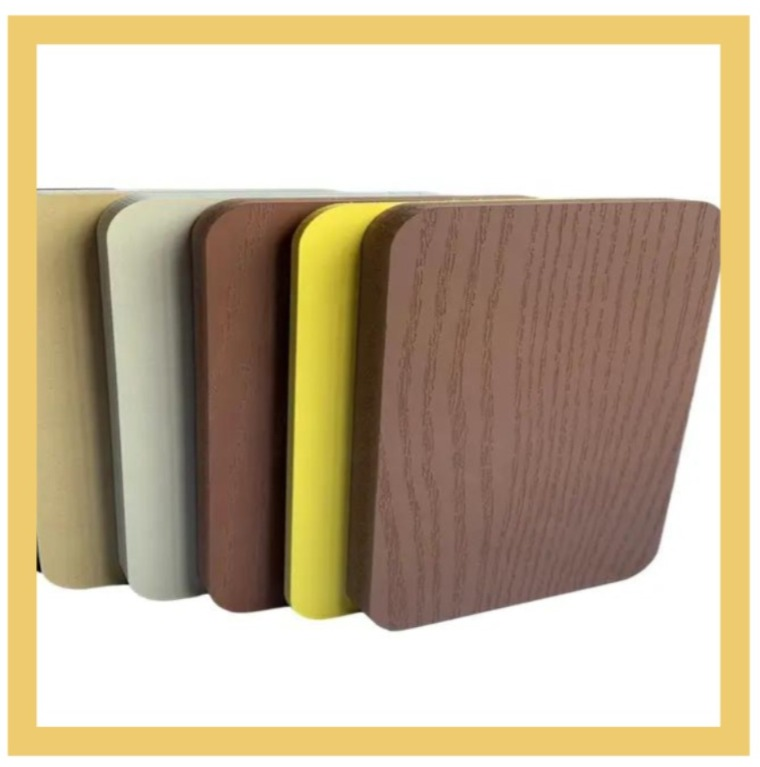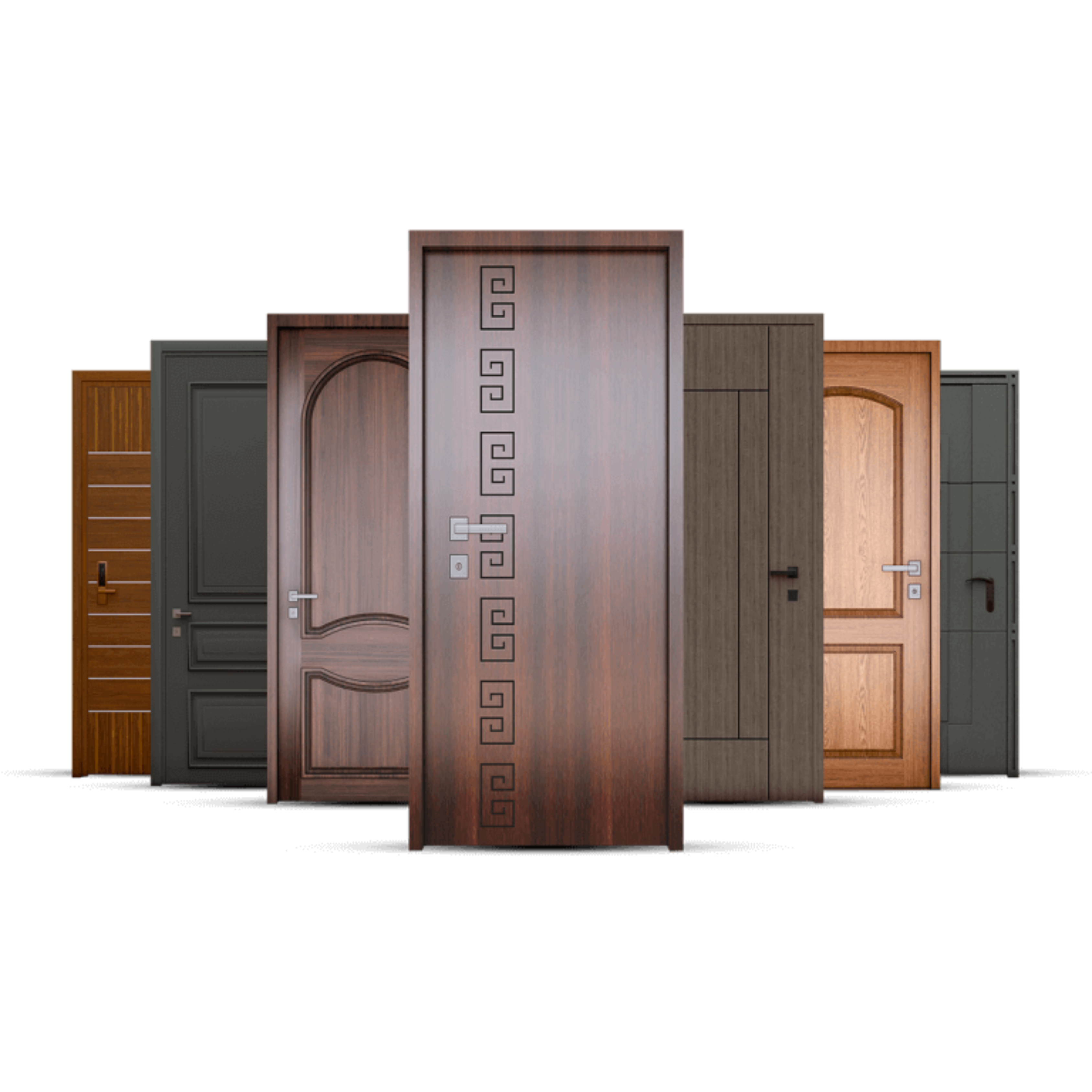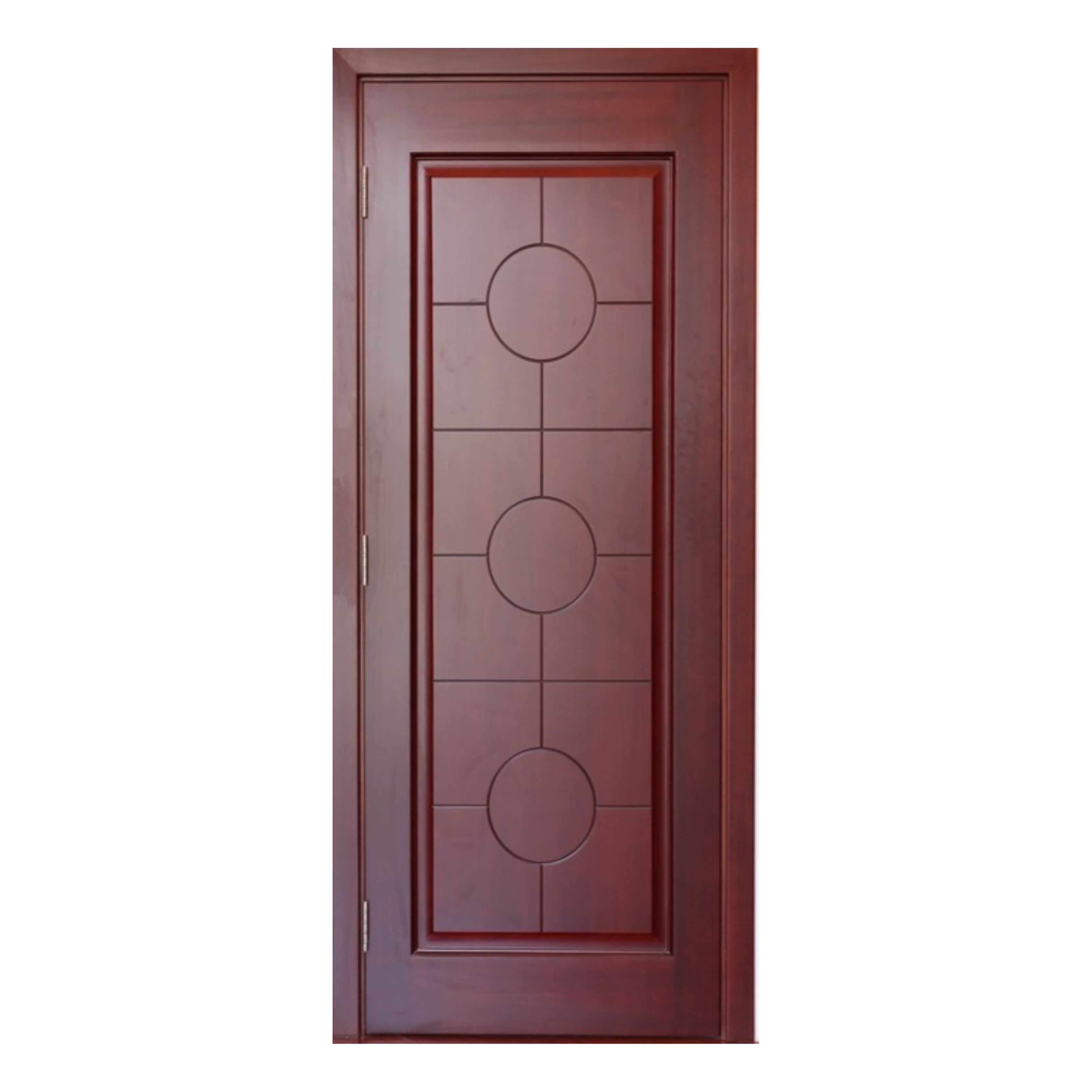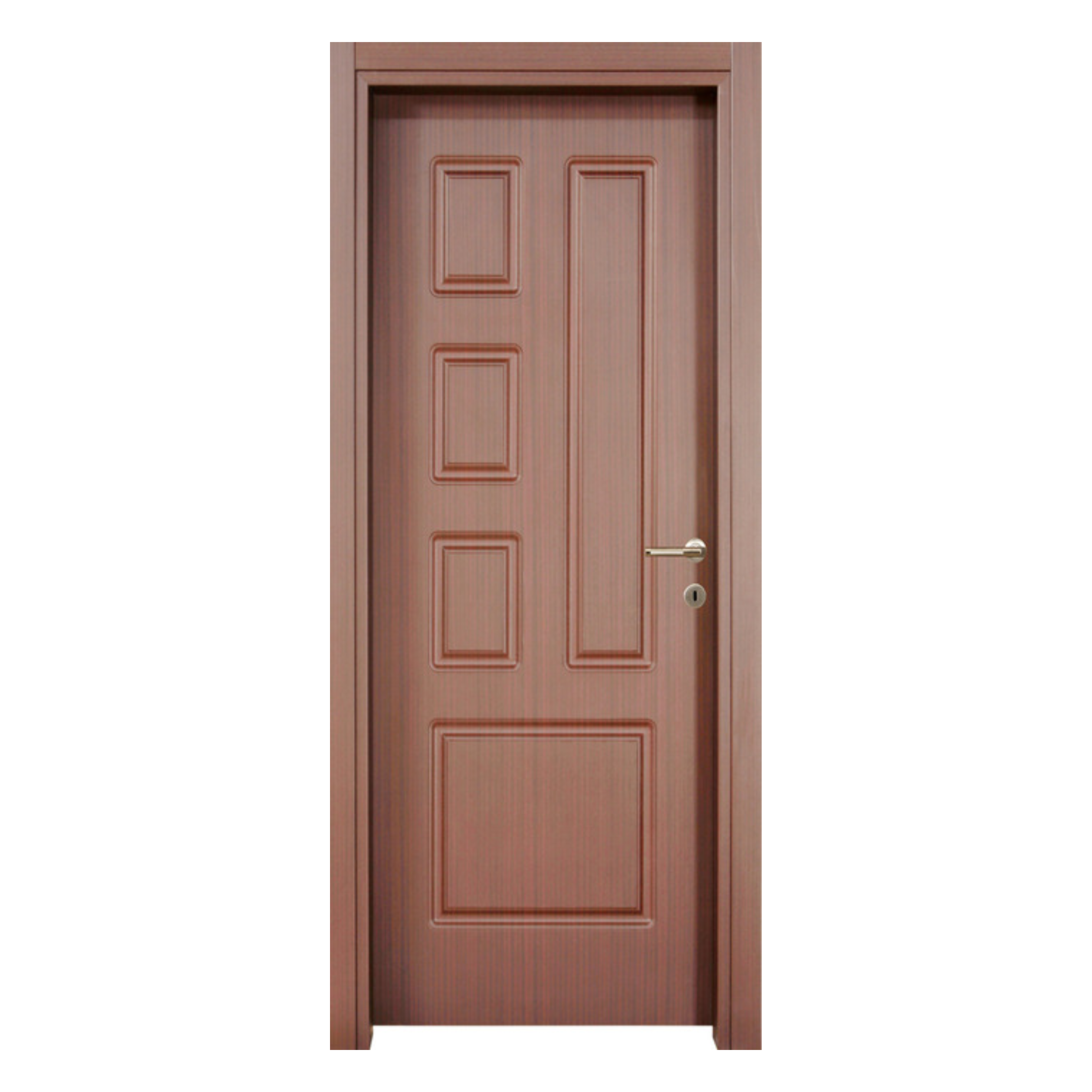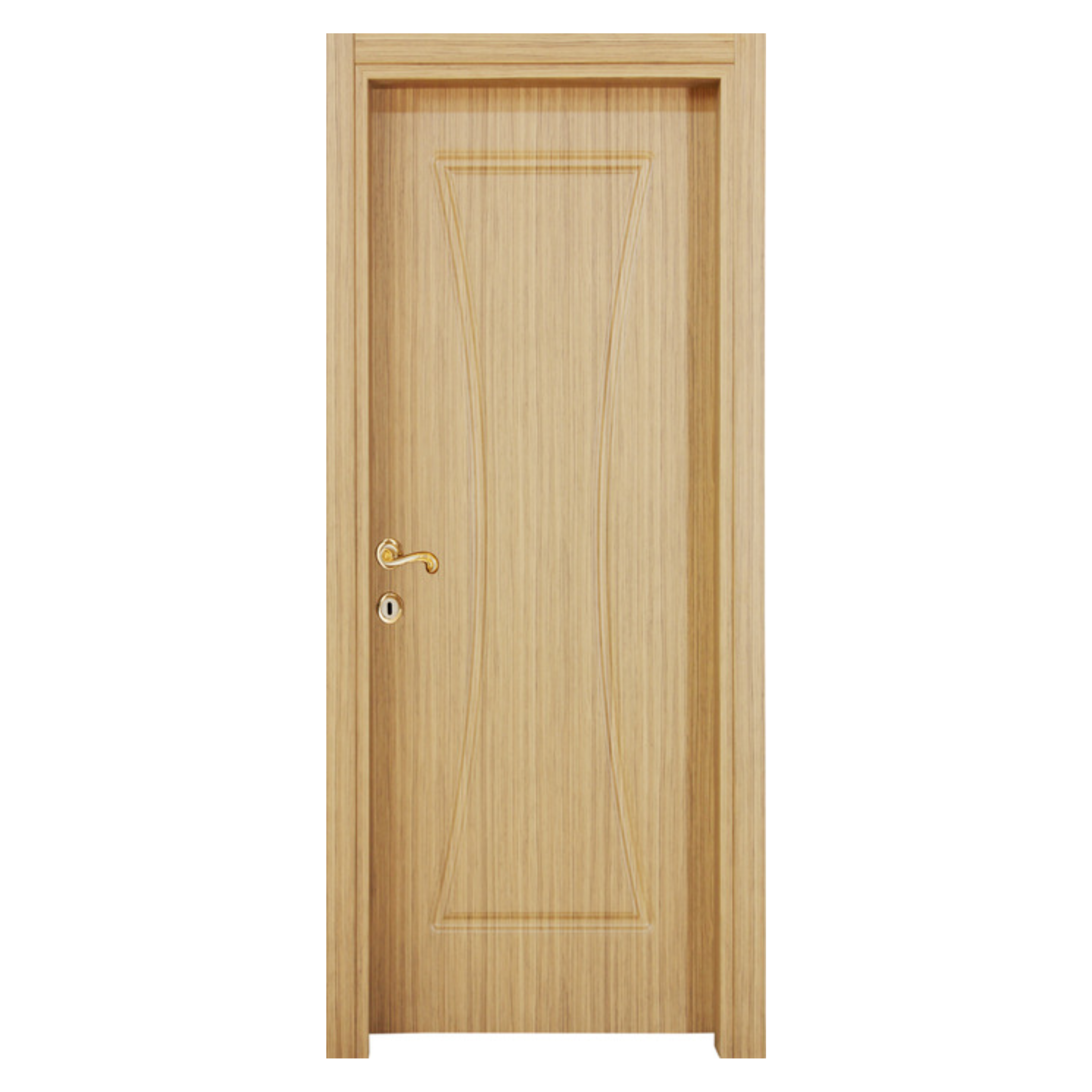Description
1- "PVC" Polyvinyl Chloride
In summary, PVC's flexibility, durability, cost-effectiveness, and resistance to moisture and termites make it a popular choice for various door manufacturing applications.
- Features:
- High corrosion resistance.
- High rigidity.
- High fire resistance.
- Dimensions stability.
- UV ray resistance.
- High crashing resistance.
- Applications:
A. Door Frames:
1- Durability: PVC is resistant to corrosion, moisture, and termites, making it ideal for door frames in areas with high humidity or exposure to water.
2- Low Maintenance: It requires minimal upkeep, as PVC frames do not warp, crack, or need repainting.
3- Customization: PVC door frames can be easily molded into various shapes and sizes to fit specific design requirements.
B. Panel Doors:
1- Lightweight: PVC panel doors are lightweight, making them easy to install and operate.
2- Cost-Effective: Compared to traditional materials like wood or metal, PVC is a cost-effective option with similar aesthetic appeal.
3- Insulation: PVC doors provide good thermal and sound insulation, helping to improve energy efficiency and reduce noise.
C. Sliding and Folding Doors:
1- Smooth Operation: PVC's low friction and lightweight nature make it ideal for sliding or folding door mechanisms.
2- Space Saving: PVC sliding and folding doors are excellent for compact spaces as they do not require much clearance.
D. Interior Doors:
1- Aesthetic Variety: PVC doors come in various Colors, textures, and finishes, including wood-like textures, providing aesthetic flexibility for interiors.
2- Fire Resistance: PVC doors are resistant to fire, adding a layer of safety, especially in residential and commercial buildings.

